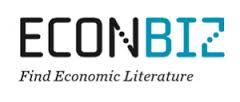Customer Satisfaction: A New Marketing Variable for Indian Petroleum Companies
DOI:
https://doi.org/10.26703/jct.v15i1.54Keywords:
Customer Expectation, Customer satisfaction, Copetitive Marketing Environment, Indian Petroleum SectorAbstract
The research was carried out using a questionnaire which was presented to the respondents, who were customers of the selected companies. Indian petroleum companies in recent years are going through a phase of turmoil as far as product marketing is concern. Since inception, they were operating in an oligopolistic environment with profit margin guaranteed by Government of India. Indian companies started losing their market share to their competitors over the years. Moreover, introduction of world best practices by MNCs and private players in India has also increased the expectation of Indian consumer from the petroleum companies. Thus a new marketing variable for Indian petroleum companies called “Customer Satisfaction” was born. Decontrolling, allowing private participation and availability of cleaner, greener and cheaper alternative fuels in the open market has made Indian petroleum market a very competitive place. Unlike other consumable products, petroleum products marketed in India by any marketer has no distinct attributes to differentiate it from other marketers. In absence of any distinct product features & price differential, this new marketing variable becomes very important for Indian petroleum companies to highlight them out w.r.t. their competitors.
Classification-JEL : E51, C58
Downloads
References
Floh, Zauner, Koller, & Rusch (2014). “Customer segmentation using unobserved heterogeneity in the perceived-value–loyalty–intentions link”, 19-20.
Marit G. Gundersen, Morten Heide and Uff H. Olsson (1996), “Hotel Guest Satisfaction among Business Travelers: What Are the Important Factors?” April 1, 7-8
Michael K. Brady & Christopher J Robertson (2001). Searching for a consensus on the antecedent role of service quality and satisfaction: an exploratory cross-national study, 51(1), 53-60.
Suchánek P. & Králová M. (2019). “Customer satisfaction, loyalty, knowledge and competitiveness in the food industry”, 37-45.
Quitty, S., A. Finn & J. B. Wiley (2000). “Systematically Varying Consumer Satisfaction and its Implications for Product Choice” Vol.10, December 2000.
Spiteri & Dion (2004). “Customer value, overall satisfaction, end-user loyalty, and market performance in detail intensive industries” 3-4.
Thorsten Hennig‐Thurau Alexander Klee (1998). “The impact of customer satisfaction and relationship quality on customer retention”, 12-14.
Yang & Peterson (2004). “Customer perceived value, satisfaction, and loyalty: The role of switching costs” 11-12.
Agarwal, Himanshu (2009). "Corporate Social Responsibility: Unveiling the Other Side of the Coin" Edited Book: Social Responsibility of Business EnterpriesesPublisher: ABD Publishers, Jaipur. Pp. 246-255. DOI: 10.5281/zenodo.3402421.

Downloads
Published
Issue
Section
License
Copyright (c) 2020 Sujoy Bhattacharya, Dr. Anuj Goel

This work is licensed under a Creative Commons Attribution 4.0 International License.










